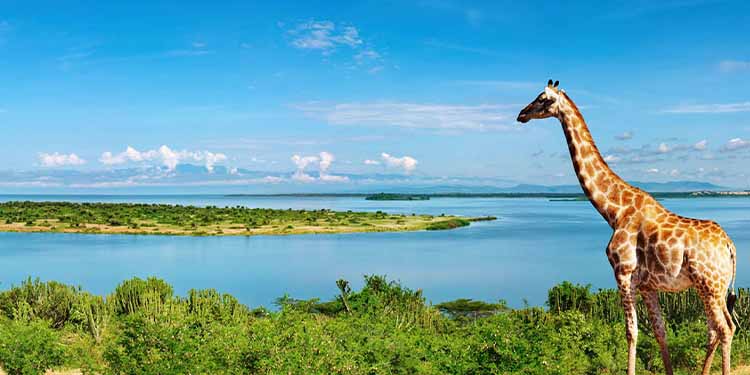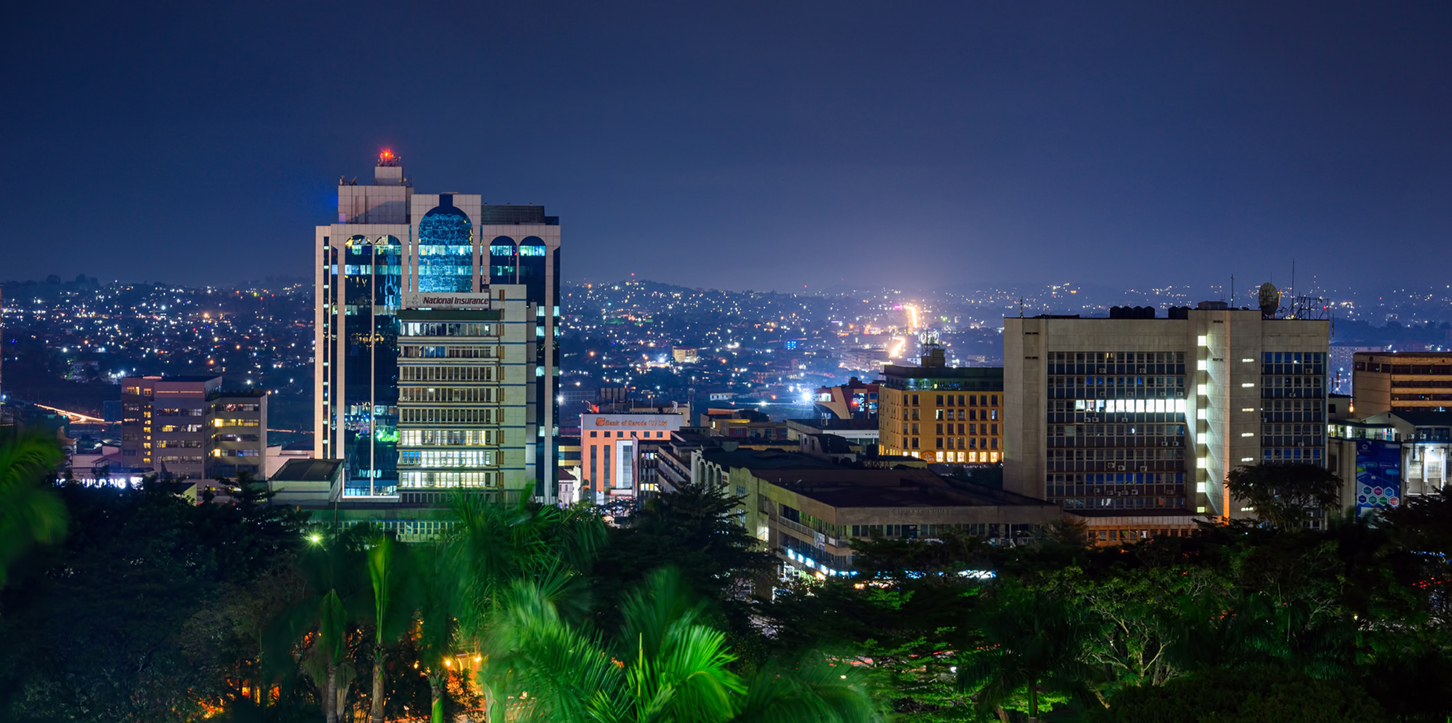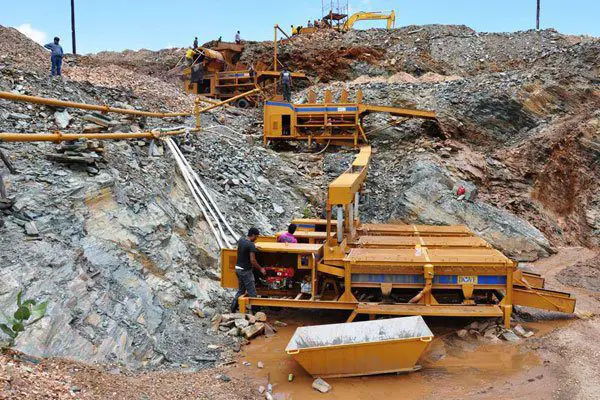Best Investment Opportunities in Uganda
Uganda has one of the world’s richest, diverse and unique wildlife diversity (unique savannah and tropical forest conservation areas. The country has 10 national parks, 2 UNESCO natural world Heritage sites, Ramsar sites, Important Bird Areas, Mountain Gorillas); the country also has, a rich, diverse and unique cultural heritage – cuisine, arts, architecture, craft, fashion, dance, faith-based attractions (One UNESCO world heritage site).
What’s more amazing is that the country has an all-year-round pleasant tropical climate. With abundant water resources and attractions, Uganda is home and source to the world’s longest River Nile. This has amazing waterfalls, and rapids. Uganda has very attractive scenic landscapes like mountains, rift valley, forest landscapes, and beautiful beaches.
The people of Uganda are naturally-hospitable. Uganda is also on the list of the world’s most linguistically diverse countries. There are quite a number tribes within the ethnic groups in the country, each with their languages and customs.
As a developing country and one of the most beautiful in Africa, the country is still a good fit for investment. You have u together for you a list of 8 bests investment options in Uganda;
Oil & Gas

Uganda is estimated to have about 6.5 billion barrels of oil most of which is located in the Albertine region and close to on the western border with the Democratic Republic of Congo. Total, CNOOC, and Tullow Oil are the current holders of licenses to develop this valuable resource.
A final investment decision (FID)was announced on Tuesday 1 February 2022. Currently the project’s joint venture partners, include TotalEnergies, China National Offshore Oil Corporation (CNOOC) and Uganda National Oil Company (UNOC). This announcement for Uganda’s Lake Albert development project is a significant step in the country’s oil sector.
This is one of the biggest projects in anticipation is the oil export pipeline which will be 1400 km long running all the way from western Uganda to the Tanga Port through at the Indian Ocean through the United Republic of Tanzania.
The Petroleum industry and mostly the oil and gas sector will require quite a lot of billion dollars of infrastructure investment in order to construct render support to the refinery with two central processing facilities including the oil export pipeline.
If you work with a firm that would like to provide services to the oil and gas sector in Uganda, you have to register on the National Supplier Database. It is from this database that international oil companies are increasingly looking for service subcontractors including engineers, housing construction, road infrastructure design and construction, environmental hazard controls, and vocational training services.
Below is a list of investment opportunities for services providers that are potentially required for the oil and gas sector in Uganda;
- Automation & Processing Equipment & Services
- Valves, Controls & Instrumentation
- Geosciences
- LNG, Geophysics, and Geology
- Marine Equipment & Services
- Measurement & Automation Technology
- Oil & Gas Transportation
- Construction (prefabricated, site, related equipment’s)
- Providers of Corrosion Protection & Equipment Insulation Services
- Drilling & Well Servicing
- Electronic Equipment & Services
- Exploration & Production
- Telecommunications & IT
- Tools & Electro-Power Equipment
- Transportation & Pipelines
- Oil Field, Gas Field Equipment & Services
- Onshore & Offshore Technology
- Pipeline Technology Maintenance & Repair
- Refining, Processing, Petrochemicals & Gas Plants
- Hospitality, And Other Consultancy and Non-Consultancy Services Including Retail & Distribution Services.

Uganda has a diverse landscape encompasses the snow-capped Rwenzori Mountains and immense Lake Victoria. Uganda is also source of the Nile which is the longest river in the world. Uganda has been listed as one of the best travel destinations to visit in 2023 by CNN.
The country’s abundant wildlife includes chimpanzees as well as rare birds. Remote Bwindi Impenetrable National Park is a renowned mountain gorilla sanctuary. Murchison Falls National Park in the northwest is known for its 43m-tall waterfall and abundant wildlife like as hippos.
Rwenzori region is undisputedly one of the most beautiful places on earth. The region is blessed with natural resources such as fertile volcanic soils, rich forest cover, mineral deposits. This place has the leading tourist destinations such as Queen Elizabeth, Mountain, Rwenzori and various other national parks.
The Rwenzori region is contiguous to five countries of the Great Lakes Region (Democratic Republic of Congo, Rwanda, Burundi, Tanzania and Zambia). This provides significant investment opportunities in the country and potential for development, regional cooperation and integration.
Erstwhile to the advent of COVID-19, Uganda received over 1.5 million tourist arrivals and generated 7.75% of GDP and 6.7% of total employment. Huge investment potentials exist in the entire tourism and hospitality value chains, including accommodation & lodging, food, recreation, entertainment, travel and tours, waste management, infrastructure development, establishment of cable cars, creative and cultural industries, conservation of heritage sites, marketing & promotion, among others.

Agriculture remains the mainstream in Uganda’s economy which accounts for over 24% of the Gross Domestic Product (GDP). The sector generates more than half of the country’s export earnings (54% IMF World Bank 2019).
Agriculture employs over 70% of the working population. It also provides the first employment for three quarters of those aged between 15 and 24 years (UBOS,2016). At the same time, Agro-processing is the backbone of the manufacturing sector accounting for approximately 60% of its total output.
Whereas agriculture has been identified as one of the key sectors that can generate wealth, with high employment potential, investment in the sector has remained low. Investing in agriculture means putting your money behind food and crop production, processing, and distribution.
The fact remains that the world needs to feed a growing population and with less land. Interest in agriculture production as an investment has grown right along with the world population of which Uganda is not exception.
Uganda is now determined to strengthen its “Farm to Fork” value-chain development in key areas in which the country has both comparative and competitive advantages. This is true with both agriculture production as well as value-added agro-processing.
Investors need to carefully study the requirements of EU buyers of agriculture and agro-processed foodstuff, with a specific focus on compliance to EU standards, quality, and norms (Sanitary and Phytosanitary Standards – SPS).
- Industry & Manufacturing

With manufacturing, the investment opportunities exist in optimizing the domestic, regional and global value-chains. Industrial diversification is a key priority of the National Development Plan III, with a specific focus on the beneficiation of local resources, import substitution and, more importantly, the development of export-oriented manufacturing businesses.
Uganda offers investment opportunities to local entrepreneurs, Ugandans in the diaspora and to foreign investors who are willing and able to invest in productive value-creation.
- Energy and Minerals Value Chains

According to the Uganda Investment Opportunity, New geo-data has indicated that Uganda has large underexploited mineral deposits of gold, oil, high grade tin, tungsten/wolfram, salt, beryllium, cobalt, kaolin, iron ore, glass sand, vermiculite, phosphates (agricultural fertilizer), uranium and rare earth elements.
Uganda also has a variability of mineral resources including copper, cobalt, tin, iron ore, tungsten, beryllium, limestone, phosphates, salt, clays, feldspar, diatomite, silica sand, glass, sand gravel, and construction materials such as granites and gneisses.
Investment opportunities in Uganda exist in mining stone for the construction and building industry, phosphates for agriculture, salt for domestic and chemical uses, iron ore for the iron and steel industry, kaolin for leather tanning and pharmaceuticals. Other minerals include silica sand and trona for glass manufacture; exploration and development of mineral deposits including oil, gold, copper, cobalt and hematite iron.
- Infrastructures and Transport

Investing in the transportation business can be profitable in Uganda if you start with effective business plan. There are lots of opportunities in this country but one need to understand the current demand. The sector covers important aspects such as taxi, outstation, shifting, boda-boda, medical emergency, etc. in Uganda different profit-making transport business ideas include the following;
- App Based Taxi Service like Uber, SafeBoda
- Courier Service
- Truck Transportation Service
- Major Route Passenger Bus Service
- Medical Emergency Transportation
- Bicycle Rental Services
- Packers and Movers Business
- School Bus/Taxi for Kids
- Bike Rental Service
- Shipping and Small Boat Services
- ICT & Creative Industries

The effective use of ICT by enterprises (Industry 4.0) has resulted in greater productivity and competitiveness across the globe. This has extended to e-governance to improve the services delivery of public agencies. e-commerce is changing the way we produce, distribute, and consume.
- Real Estate and Construction Opportunities in Uganda

Uganda has one of the most Active Construction Sectors in East Africa. With a visible housing deficit, across the country, this sector needs well-developed building and construction industry with quality engineering, building and architectural design services.
The country has a large market for construction material, heavy government investment in infrastructure, a conducive regulatory environment, and evident rising demand for commercial and residential buildings.
With the fastest growing population in the region, and increasing demand for affordable housing, investment opportunities exist in the construction of residential, commercial and industrial buildings. Another investment idea in Uganda is also manufacture and supply construction materials and components for the sector.
At the moment, nothing matches the business acumen and readiness for investment like Uganda. It is open for business to well-positioned companies with strategic objectives of tapping into the growing potential of emerging markets in East and Central Africa.
Why Invest in Uganda

There are countless reasons to invest in Uganda. The African Development Bank strongly suggests that one should look into retail, construction, and telecommunications. Due to the discovery of oil reserves, investors such as yourself should look towards a country whose mining, transport, and hospitality sectors will grow in leaps and bounds. Similarly, rapid urbanization and commensurate public investment in urban development mean that the country’s service sector will only grow faster. Interestingly, a 2015 global survey established that Uganda was the world’s most entrepreneurial country – one that would only see an upward trajectory given further clustering of skills and technology, proximity to financial services, and further progress made on improving the regulatory environment. According to the 2020 World Investment Report, the volume of foreign direct investment being infused into Uganda grew by 20% over the previous year, to a record high of US$ 1.3 billion. Investors from Kenya, Germany, Belgium mostly ostensibly agree with the viability of the country’s major oil fields, an international oil pipeline, and the coffee and mining sectors.

While the 2020 Index of Economic Freedom clarifies that Uganda is the 102nd freest economy in the world, it is the 10th freest in sub-Saharan Africa. It intends to become an upper-middle-income country by 2040. The expectation is that Uganda will achieve upper-middle-income status by ambitious infrastructure expenditure within an economic environment where property rights are guaranteed by law, and government spending and budget deficits are efficiently managed. In the World Bank’s 2020 Doing Business report, Uganda gained 11 places to be ranked 116th out of 190 countries. The notable improvement in ranking was premised on a more aggressive regulatory regime around power outages, a remarkable development of the country’s financial services sector, and further privatization of the banking sector. Relatively, Uganda is a shareholder in regional institutions such as the Eastern and Southern African Trade and Development Bank (TDB) and the African Trade Insurance Agency (ATI). TDB is on hand to intermediate both regional and global capital to its Member States, and ATI provides risk mitigation services such as the provision of political risk insurance (PRI).

Invariably, one cannot deny Uganda’s strategic location within the Great Lakes region. On top of the country’s capacity to become a regional hub of trade and investment, the Pearl of Africa is an integral party to the functional East African Community customs union. Likewise, one can expect that when the African Continental Free Trade Agreement (AfCFTA) is fully implemented, Uganda will play a critical role in further boosting and facilitating intra-African trade.
Contact our team for more information
Let’s Chat!
Email. info@africagoldrefinery.com
Whatsapp. +256750533726

